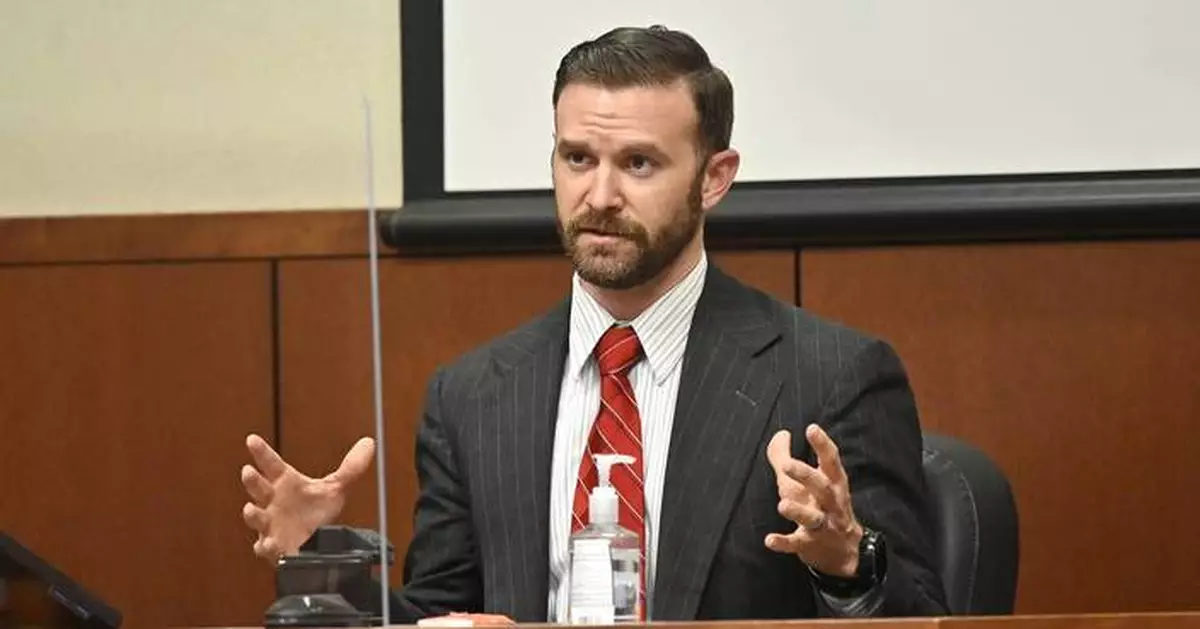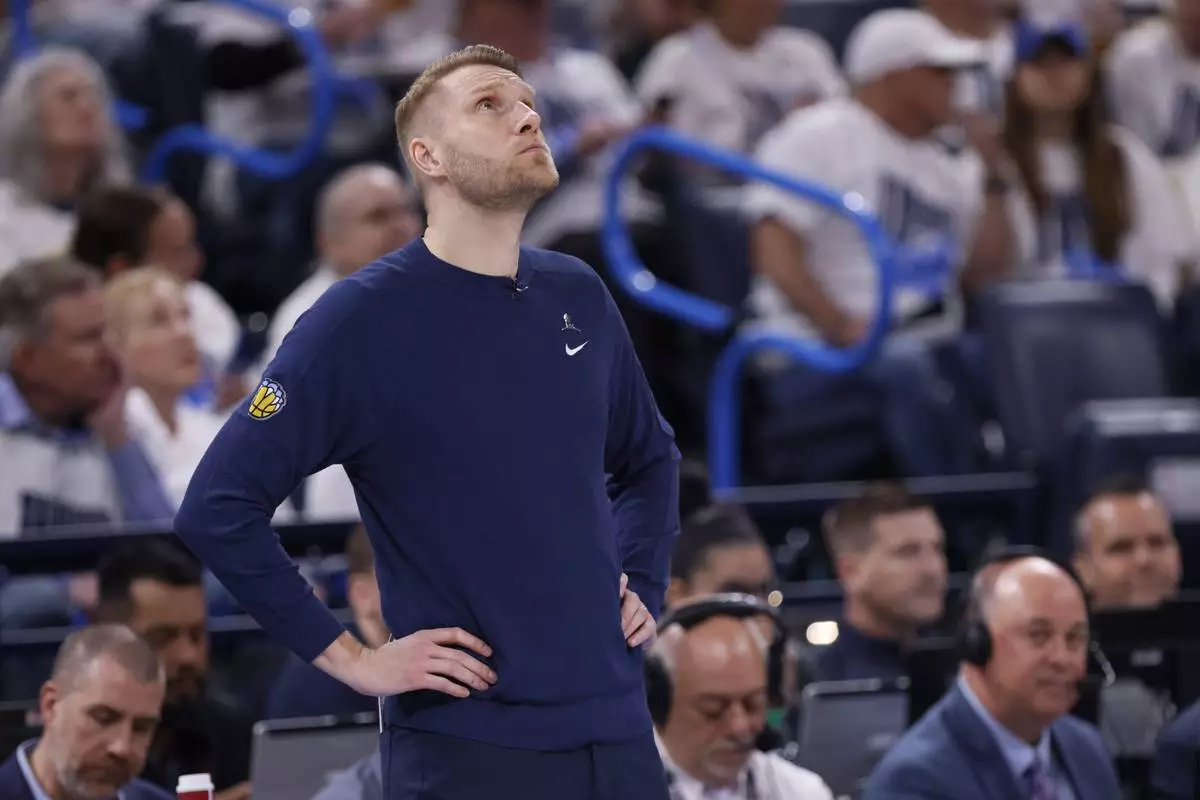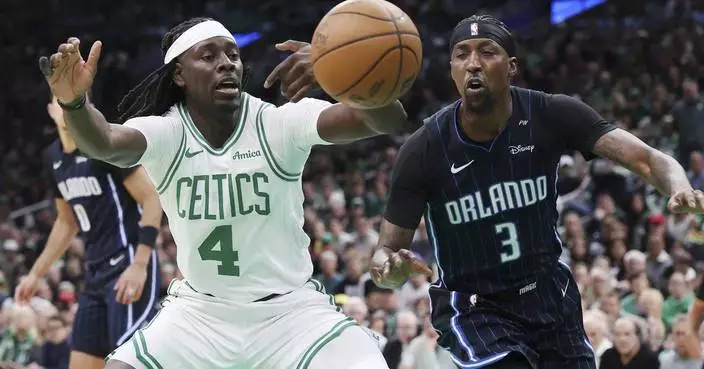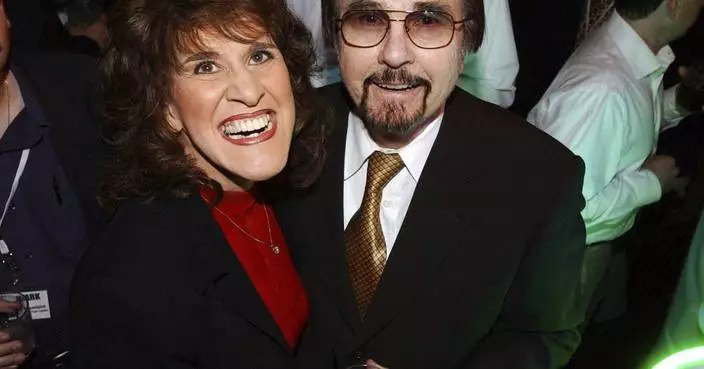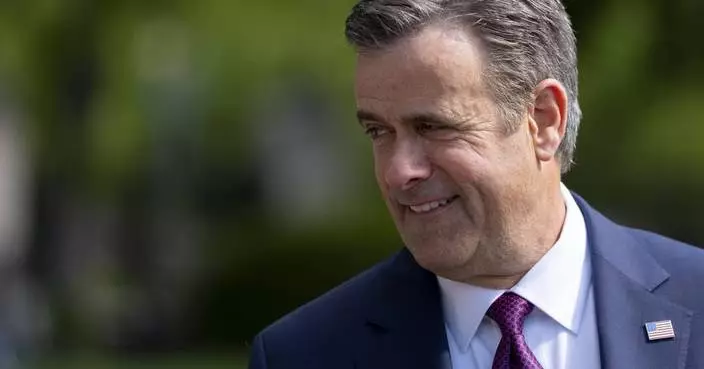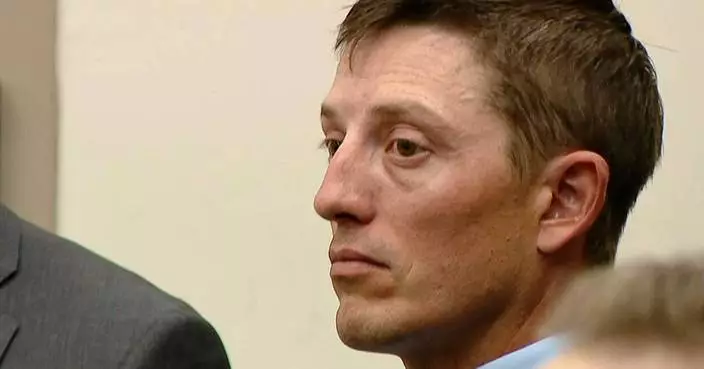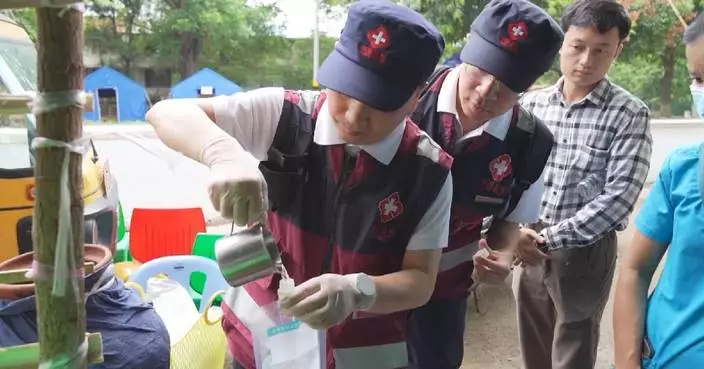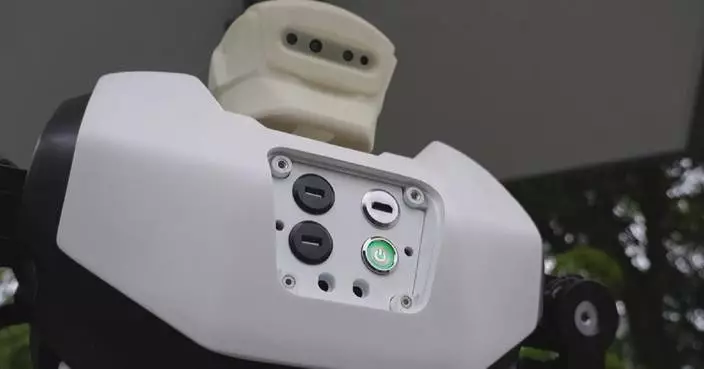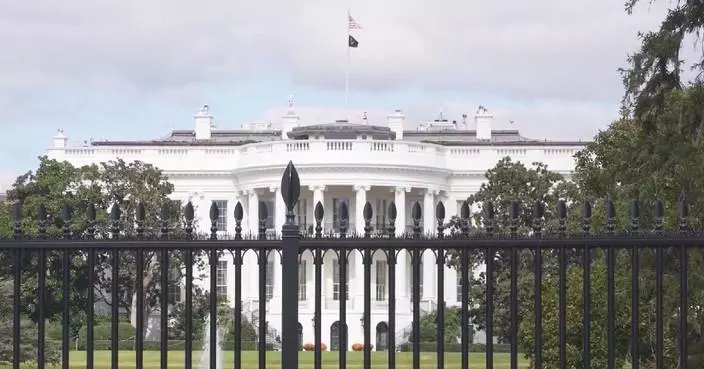LOUISVILLE, Ky. (AP) — A federal judge has thrown out major felony charges against two former Louisville officers accused of falsifying a warrant that led police to Breonna Taylor's door before they fatally shot her.
U.S. District Judge Charles Simpson's ruling declared that the actions of Taylor's boyfriend, who fired a shot at police the night of the raid, were the legal cause of her death, not a bad warrant.
Federal charges against former Louisville Police Detective Joshua Jaynes and former Sgt. Kyle Meany were announced by U.S. Attorney General Merrick Garland in 2022 during a high-profile visit to Louisville. Garland accused Jaynes and Meany, who were not present at the raid, of knowing they had falsified part of the warrant and put Taylor in a dangerous situation by sending armed officers to her apartment.
But Simpson wrote in the Tuesday ruling that “there is no direct link between the warrantless entry and Taylor’s death." Simpson's ruling effectively reduced the civil rights violation charges against Jaynes and Meany, which had carried a maximum sentence of life in prison, to misdemeanors.
The judge declined to dismiss a conspiracy charge against Jaynes and another charge against Meany, who is accused of making false statements to investigators.
When police carrying a drug warrant broke down Taylor's door in March 2020, her boyfriend, Kenneth Walker, fired a shot that struck an officer in the leg. Walker said he believed an intruder was bursting in. Officers returned fire, striking and killing Taylor, a 26-year-old Black woman, in her hallway.
Simpson concluded that Walker’s “conduct became the proximate, or legal, cause of Taylor’s death.”
“While the indictment alleges that Jaynes and Meany set off a series of events that ended in Taylor’s death, it also alleges that (Walker) disrupted those events when he decided to open fire" on the police, Simpson wrote.
Walker was initially arrested and charged with attempted murder of a police officer, but that charge was later dropped after his attorneys argued Walker didn't know he was firing at police.
“Obviously we are devastated at the moment by the judge's ruling with which we disagree and are just trying to process everything,” Taylor's family wrote in a statement Friday to The Associated Press. It said prosecutors told the family they plan to appeal Simpson's ruling.
“The only thing we can do at this point is continue to be patient ... we will continue to fight until we get full justice for Breonna Taylor.”
The U.S. Justice Department said in an email that it “is reviewing the judge’s decision and assessing next steps."
A third former officer charged in the federal warrant case, Kelly Goodlett, pleaded guilty in 2022 to a conspiracy charge and is expected to testify against Jaynes and Meany at their trials.
Federal prosecutors alleged Jaynes, who drew up the Taylor warrant, had claimed to Goodlett days before the warrant was served that he had “verified” from a postal inspector that a suspected drug dealer was receiving packages at Taylor’s apartment. But Goodlett knew that was false and told Jaynes the warrant did not yet have enough information connecting Taylor to criminal activity, prosecutors said. She added a paragraph saying the suspected drug dealer was using Taylor’s apartment as his current address, according to court records.
Two months later, when the Taylor shooting was attracting national headlines, Jaynes and Goodlett met in Jaynes’ garage to “get on the same page” before Jaynes talked to investigators about the Taylor warrant, court records said.
A fourth former officer, Brett Hankison, was also charged by federal prosecutors in 2022 with endangering the lives of Taylor, Walker and some of her neighbors when he fired into Taylor's windows. A trial last year ended with a hung jury, but Hankison is schedule to be retried on those charges in October.
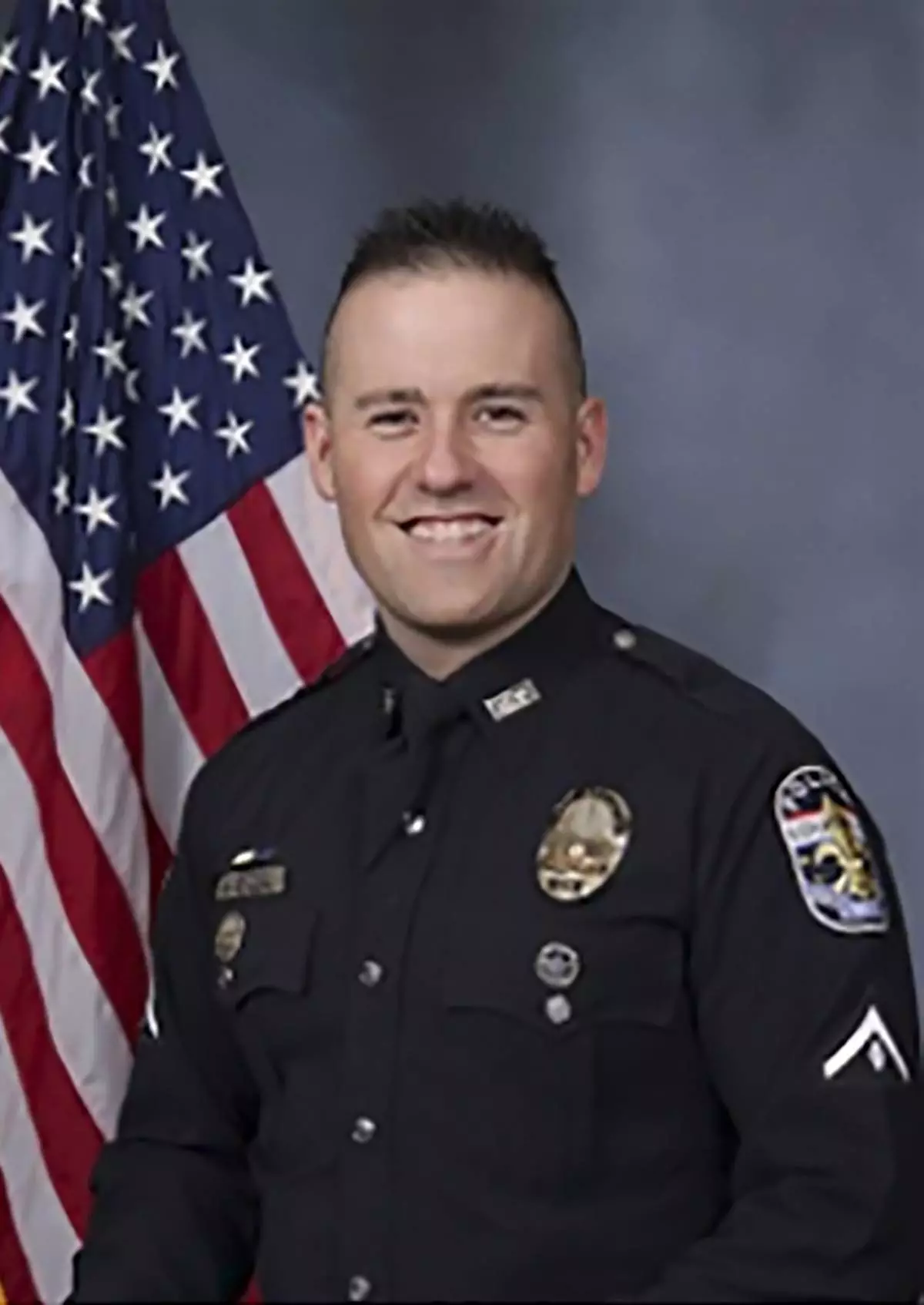
FILE - In this file photo, date not known, released by the Louisville (Ky.) police is Louisville Police Det. Joshua Jaynes. (Louisville Police via AP)
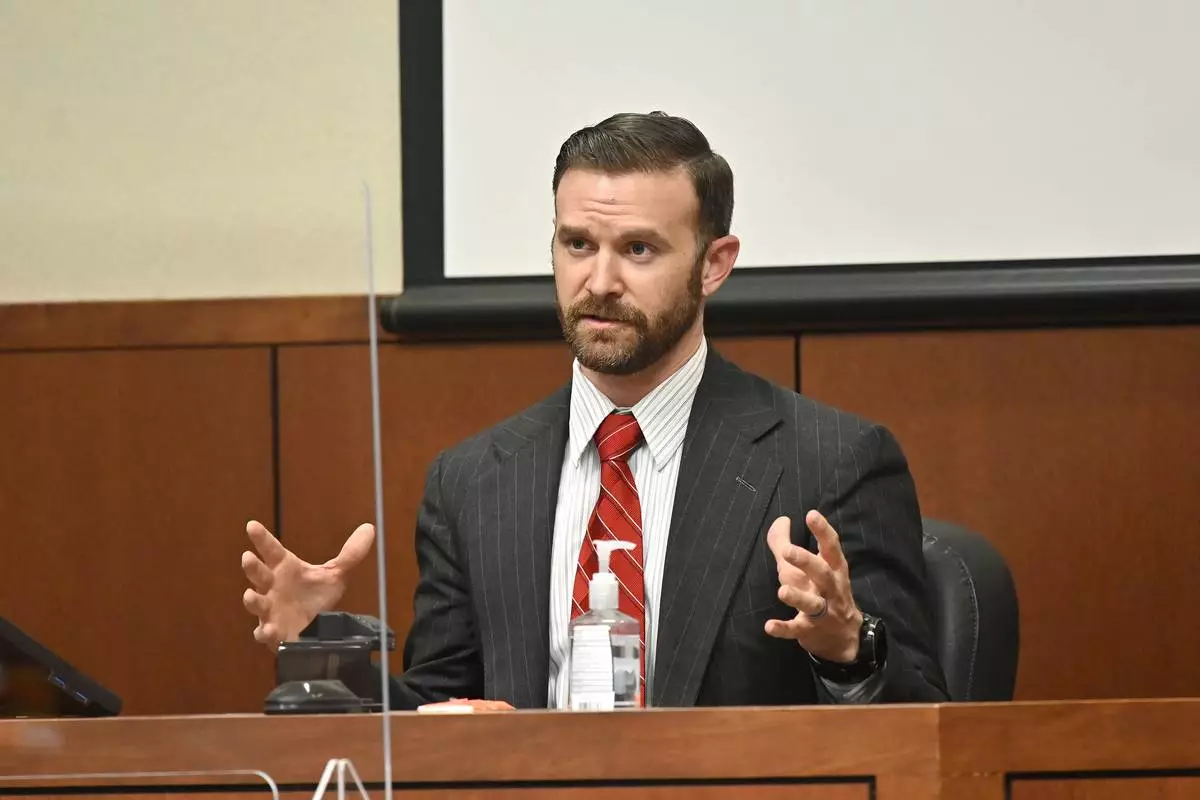
FILE - Sgt. Kyle Meany of the Louisville Metro Police Department testifies, Feb. 23, 2022, in Louisville, Ky. (AP Photo/Timothy D. Easley, Pool)


